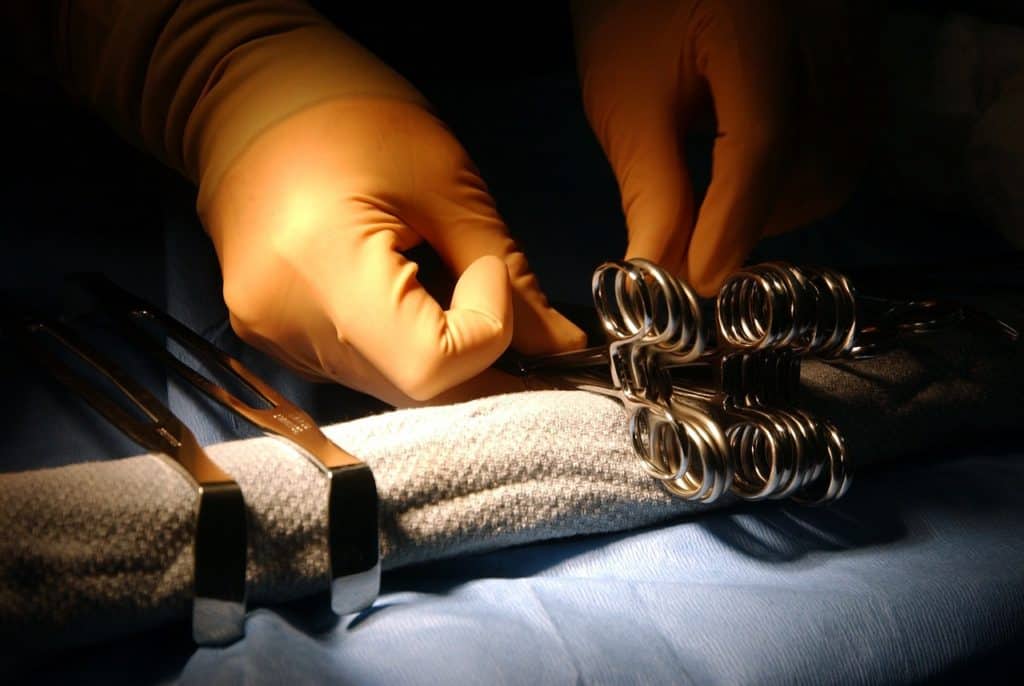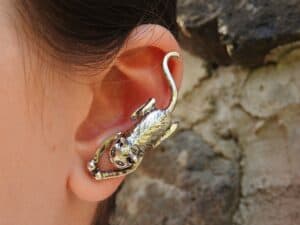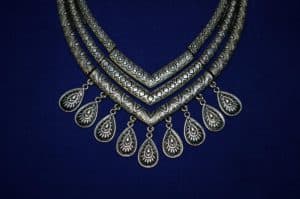This might look like a rather queer question, but it is one that flashes in the minds of surgeons,nursing staff, doctors and patients alike. A lot of people I know, and myself being no exception, are so habitual of wearing jewelry that we seldom take it off. But is it OK to keep wearing your jewelry during surgery? Does keeping jewelry on during surgery pose any risk? Let’s try and answer this question today.
While this depends largely on the type and intricacy of the surgery you are undergoing or performing/supporting (if you are a medical practitioner), it is generally smart not to have on any jewelry during surgery. There may be the risk of burns, bruises and jewelry parts getting into the way of procedures, which is why most hospitals would require you to remove any jewelry before entering the operation theatre.
Why do I need to remove my jewelry before surgery?

The reasons why you must remove your jewelry before surgery pertain not just to the threat to the very jewelry, but also the health hazards this can cause. Medical reasons include the risk of tangling with drapes or equipment, heightened risk of burns, vulnerability to infections, compromised blood circulation, and access to airways and urinary catheterization. Non medical factors include the possible loss of jewelry, deterioration of jewelry owing to exposure to chemicals or body fluids.
1. Heightened risk of burns
A very common medical procedure through which patients are put through in surgeries is Electrocautery. This involves passing of high frequency electric current to the area of the patients body being operated, in order to produce the necessary heat to carry out dissipation of unhealthy tissues, and sealing of bleeding blood vessels etc. If the patient is wearing jewelry containing metal at this time, there is a risk of the metal in the jewelry conducting the electric current and causing burns.
Such burns can be very hard to notice for the surgeon as well as the patient, since the latter is may be under the influence of anaesthetics.
2. Vulnerability to Infections
Jewelry that we wear everyday is prone to be housing a lot of bacteria. If this jewelry is worn at the time of surgery, the chances of the body catching infection owing to the impregnated bacteria are greatly increased. This is true not just for the patient, but also the surgeons and the medical staff assisting the surgery.
This article discusses the risk of infections owing to jewelry worn by medical professionals at the time of surgery.
3. Compromised Blood Circulation
Swelling in hands and legs is a common occurence post surgery. If metallic jewelry is worn by you when this swelling ensues, there the hard metal jewelry would put pressure on the swelled limbs and may inhibit optimum circulation of blood to the extremities.
4. Blocked Airways
Piercing , especially those done on tongues , nose and around the chin can act as inhibition to the natural airways in the body. These may also impede the medical staff from getting access to the airways and putting oxygen mask or other instruments , which can be crucial during the surgery. This is why most hospitals have a strict no tolerance policy around piercing jewelry pieces.
Can You Wear Earrings in Surgery?
The simple answer to this is no, you cannot wear earrings in surgery. If you are the surgeon performing the procedure or a doctor assisting it, there is a risk of confusing your patient with the earrings on , in addition to they coming in the way of the procedure. For patients as well, earrings might not be comfortable to wear, or may bruise them during the procedure. This is why all types of earrings, and especially danglers are mandated to be either removed, or covered in tape in hospitals across the world.
Can I keep my piercings in during surgery?
No you can not and ideally, should not keep your piercings on during surgery. The reason for this primarily is that piercing mostly contains metal parts, which may conduct heat and electricity, causing burns (Electrocautery burns). They may also be tangled with instruments and supplies during the surgery, and lead to fatal complications. This is why all piercings must be removed before going in to the surgery room.
What if I don't want to remove my jewelry during surgery?
While most hospitals and care centres have strict mandates around not allowing any jewelry , be it piercing during surgery, there are many times patients insist to have them stay in. There can be instances where you want to keep your jewelry piece or piercing in for good luck during the surgery, or might have some personal reservations around removing them. With piercings especially, many people do not want to take on the risk of the piercing hole closing up, and hence do not want to get rid of the piercing.
Whatever may be the reason, there are just two options you have in such as case
- REQUEST YOUR SURGEON
You may try talking your surgeon into it, explaining the reason why you would want to put on the jewelry piece during surgery. But as I mentioned earlier, most hospitals have pretty strict protocols around it , and so your surgeon is unlikely to give in to the persuasion. Even so, it is ill-advised as it may put the entire procedure and your life at risk.
A common practice in operation rooms before the surgery is to tape any jewelry which the patients do not wish to remove.
Why do they tape Jewellery during surgery?
If a patient simply has to have a piece of metal jewelry on during surgery, then a common procedure followed by medical professionals is to cover the jewelry evenly with non conducting tape. This way, the risk of the jewelry piece conducting heat or electricity during the procedure in any way is mitigated, as the tape acts as a layer of insulation between the body and the heat or current.
Here is a resource with comments from operating room educators and surgery directors, which I found useful in this regard.
- PLASTIC REPLACEMENTS
Plastic replacements are a great way to have some jewelry on, while going in for surgery. Many manufacturers today provide piercing replacements crafted out of anti-allergic plastic, which are perfectly safe to take into the surgery room or the MRI machine. I have personally used one of these to make sure the pierced holes did not fill up during MRI.
Last year when I got the upper lobe of my left ear pierced, I had to go in for a MRI. The doctors told me to remove any piercings before-hand. Since I was worried that the pierced hole might fill up , I went in for these plastic medical piercing replacements from Amazon. They fit my piercing just fine, and caused no irritation. So a good value proposition , if you land in the same situation, I would suggest!
But what if you have a tongue or nipple piercing?
One of my fiends was undergoing a surgery for her shoulder last summer, just weeks after she had got her nipples pierced. She had ordered these plastic barbell replacements. They were quite light in weight and caused her no irritation , both during and post the MRI. Both the end balls are un-screwable and so they are quite easy to put on as well. A good buy before you head into the OT or the for the MRI, under $10!
Conclusion
Hope I was able to clear some air around wearing jewelry during surgery. Do explore plastic jewelry as an option if you are looking forward to have some jewelry on during an upcoming surgery. Here is a resource I compiled around plastic jewelry, that will set you up just fine.
So keep safe, and shine on!





